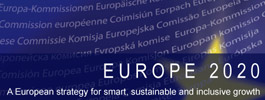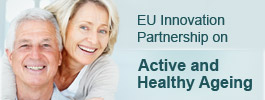By, Prof. Thomas Platzek, Chair of the Scientific Committee on Consumer Safety

In April 2013, new members of the Scientific Committee on Consumer Safety (SCCS) were elected for the term 2013-2016 in Luxembourg. This Committee – active since its mention in the Cosmetics Directive of 1968, will continue the four decades long tradition of committees giving scientific advice on the safety of cosmetics to the European Commission. The SCCS plays also an important role in the new Cosmetic Regulation which will come into force in July 2013.
The
Committee members
![]() are selected by the European Commission as independent experts based on their outstanding scientific expertise via a public call for expression of interest.
are selected by the European Commission as independent experts based on their outstanding scientific expertise via a public call for expression of interest.
As industry is involved in current research on product ingredients and alternative methods, it is a concern that certain parts of the civil society may feel there is a conflict of interest of Committee members' involvement in projects shared with industry experts (public-private research platforms). The Committee is regulated to avoid dichotomy between scientific excellence and independence so that having an interest which has to be declared does not necessarily mean having a conflict of interest.
The Committee works in the public interest and takes its decision by majority through a collegial discussion, which is key to challenge and to balance the scientific debate and to guarantee the independence of the scientific outputs (no one-person decision taken). Minority opinions are also recorded.
Over the past years the Committee has assessed the safety of numerous ingredients: hair dyes, fragrances, artificial tanning devices, UV filters, hydrogen peroxide in tooth whitening products and preservatives. The current work of the Committee focuses on nanomaterial.
One of the main challenges over the next years will be the safety assessment of ingredients which were previously subject to animal testing. Since animal testing is now prohibited there is a need to develop and find adequate testing through the use of alternative methods despite the fact that alternative methods are not available for all toxicological endpoints. Another challenge is represented by nanomaterial ingredients, which have to be assessed in spite of the fact that none of the validated alternative methods currently available for conventional chemical substances has been validated specifically for nanomaterial. The Committee is delighted to start meeting these challenges.
These challenges will boost research and investigations in these fields, which is the basis of science progress. The SCCS will be in the front line to guarantee European Union citizens a high level of safety and health protection while, at the same time, allowing science and innovation to play a key part in encouraging competitiveness and economic growth in Europe.






